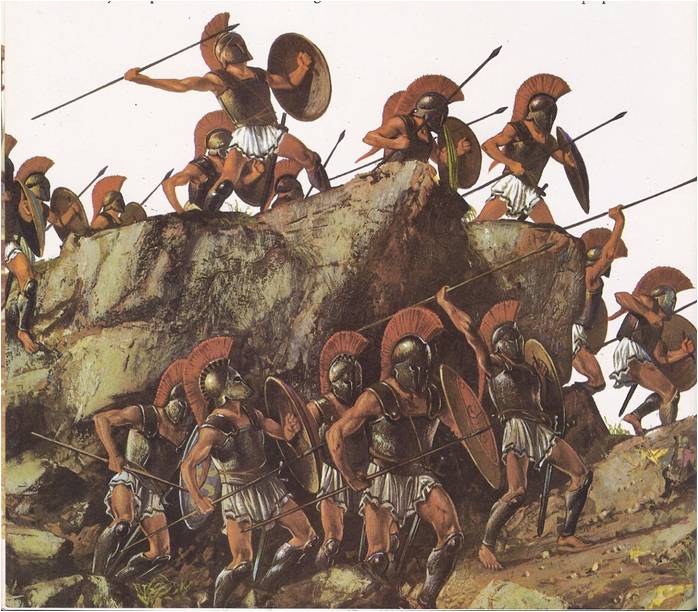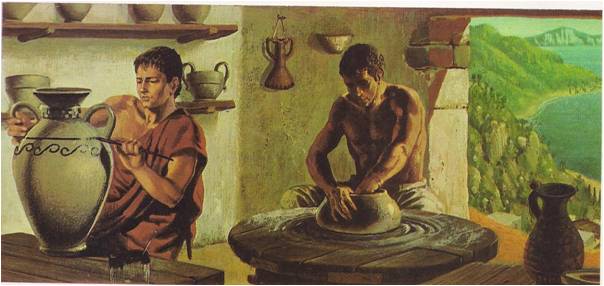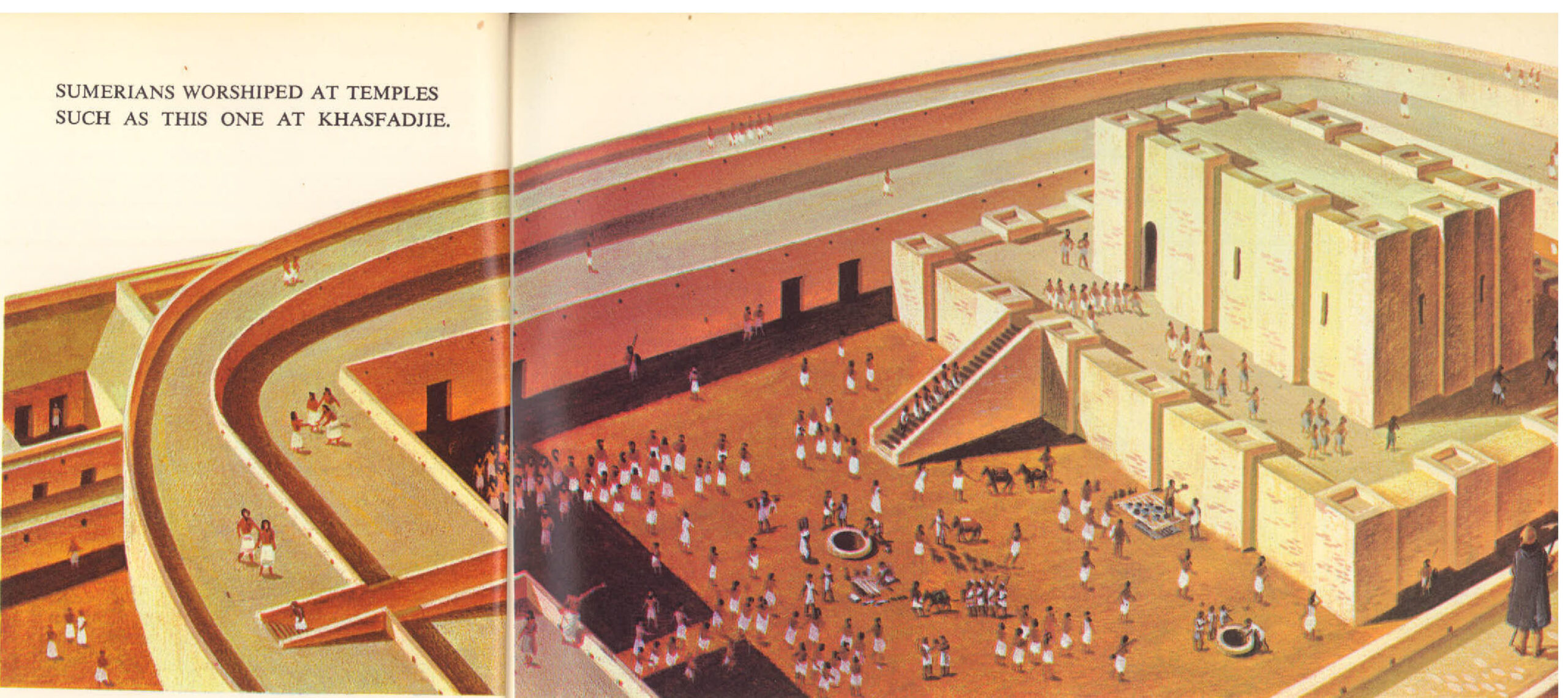In the last years of the fourth century B. C., Greek citizens going about their business in the stoas or the shops sometimes stopped and wondered what was wrong. Everything seems strange. They themselves had not changed and their cities looked the same as before, but the world around them was so different that they could hardly recognize themselves. The little poleis on the mainland looked out at an enormous empire, which stretched across Asia and Egypt. They shipped their olive oil and pottery across the Mediterranean. Their corn came from fields beside the Black Sea and the Nile. Merchants …
Read More »Tag Archives: Mediterranean
Greek Against Greek 430 B. C. – 404 B. C.
About 425 B. C., a lonely man, in a country that was not his own, sat down to write the story of a war that had begun six years before. Thucydides, an Athenian, had fought in the war’s first battles. He had been a general, in command of thousands of his city’s troops. Then he was ordered to go to the aid of another commander whose men were outnumbered. When he arrived, the battle had already been fought and lost. It was not his fault but the people of Athens were too anxious about the war to consider that. They …
Read More »Kings, Tyrants and Democracy 1000 B. C. to 100 B. C.
During the Dark Ages, the large kingdoms of Homer’s Achaean heroes had disappeared. The Greek world was now dotted with dozens of little countries. They had begun with fortresses set on hills and crags. Soon each fortress was surrounded by a village, as farmers abandoned their huts in the fields and built new homes close to the walls. In times of danger, they could take refuge behind the walls. A market place was built and a few metalsmiths and potters opened shops. When temples were set up inside the fortress, the castle hill became an acropolis, a “high town,” the …
Read More »Gods and Heroes 800 B.C. – 550 B.C.
From island to island and town to town, across the wide new world of the Greeks, the minstrel wandered, with a harp slung across his back and a batch of stories in his hand. When he knocked at the gate of a palace or great house and offered to sing for his supper, he was never refused. There were no shows to see and no books to read. The people relied on the minstrels to entertain them and to tell their stories of the past, which otherwise might be forgotten. The minstrel’s stock of stories was a mixture of tall …
Read More »The Power of Minos 2200 B.C. to 1400 B.C.
Far to the south of the Greek Peninsula lay the large island of Crete. It was the home of a nation of sea-warriors – cruel, dark, handsome men, who claimed the eastern Mediterranean and all the Aegean Sea as their own. For eight hundred years — from 2200 to 1400 B. C. — they made good on their claim. The Cretan seamen strutted about the decks in loincloths and high bools. They wore clanking jewelry of finely worked gold, curled their long hair and rubbed their bodies with perfumed oil so that they glistened in the sunlight. They were fighters …
Read More »The Silent Peninsula 3000 B.C. to 1600 B.C.
About 3000 B. C., when the Pharaohs ruled Egypt and Babylon was the home of mighty kings, bands of sailors set out from Asia Minor. They followed a little chain of islands that led northward across the unexplored sea that, centuries later, would be called the Mediterranean. If the islands had not been there, the sailors would never have dared to sail so far from home. Asia, the only world they knew, stopped at the eastern store of the sea. Some of the men were afraid that they might suddenly reach the end of the world and drop over it …
Read More »Mesopotamia, Where Civilization Began 4000 B.C. – 1750 B.C.
Mesopotamia is where civilization began. By 4000 B. C., many different groups of people were working out their lives in a variety of ways. In a great arc from the eastern coast of the Mediterranean, across the Turkish plains and through the highlands of Iraq and Iran, groups of peoples had settled and were farming, tending animals, making pottery and building towns, markets and forts. In the deserts, mountains and steppes, nomadic tribesmen lived by herding animals and by hunting and raiding. In Mesopotamia as these populations grew, they began to compete for land, food and supplies. One of the …
Read More »





